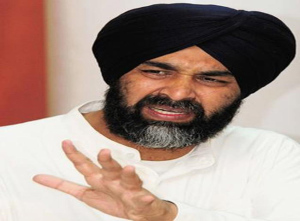
Chandigarh, Finance Minister, Arun Jaitley rightly observed that instead of small steps, India needs a quantum leap. But unfortunately, far from a gigantic leap, his budget did not even comprise any small steps. It was more a case of one step forward and two steps back. The Economic survey released yesterday had noted that, “India has reached a sweet spot —rare in the history of nations — in which it could finally be launched on a double-digit medium-term growth trajectory”
One would have expected that Mr Jaitley would have used these propitious circumstances of low international oil prices, declining inflation, comfortable forex reserves and an interest from international investors to initiate widespread structural reforms, but sadly the budget shied away from any significant reform initiative.
In his own words, Mr Jaitley described the decline in farm incomes and manufacturing sector as two of his biggest concerns. Despite identifying the right problems, the budget fails to offers any tangible solution. One would have expected some fiscal incentives and infrastructural up gradation for the myriad small and medium scale industry clusters, that contribute to more than 50% of India’s manufacturing export. Similarly, a clear cut path for promoting food processing industry and upgrading the supply chain infrastructure for agriculture produce would have gone a long way in making agriculture more remunerative. The stark absence of these two measures, is especially disconcerting for Punjab, where agriculture diversification has failed to take off because of the absence of an enabling infrastructure and various small scale industry clusters are in a state of terminal decline.
At the same time, the Finance Minister decision to not give tax relief by increasing the standard deductions is inexplicable. The downward inflationary trend and government’s comfort with regards to bearish crude oil prices, should have given government an adequate cushion to pass the benefits to the common man. If the direct tax benefits appeared a bit tricky, than at least reduction in excise duties especially on petroleum product would have put more money in common man’s pocket by further brining the overall inflation rate down.
With regards to its mission of Skilled India, I regret to say, that so far it has been an instance of more hype and very less substance. While the Finance Minister was right to point that an overwhelming majority of India is below 35 years and hence need to find good jobs, he failed to show an appreciation of the fact that the lack of employment opportunities is essentially because of poor skills of our youth. For any manufacturing revolution to work in India, we need a whole chain of new Industrial Training Institutes (ITI), Polytechnics. But the Budget has no provision for this and as I pointed out earlier, the small and medium scale industries that can generate such jobs, are themselves in a pitiable state.
Finally, rather defensively Finance Minister conveyed that the deficit levels of the government could not be brought down (as originally targeted), because of government’s commitment to welfare schemes. It is regrettable that the alibi of welfare schemes has been used to shy away from fiscal discipline. A welfare state shall always be committed to welfare objectives and schemes. Government has to achieve deficit control by bringing parsimony in its own unproductive expenditure and by improving the tax collection. Sadly, there are no concrete steps in this budget for either of these two aspects. Overall, there were lot of expectations from Mr Jaitley’s first full fledged budget, but dare one say—he has flattered to deceive.




 Driving Naari Programme launched in Chandigarh
Driving Naari Programme launched in Chandigarh






























